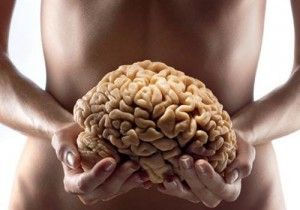Do You Know That Your Gut is Your Second Brain?
Feb 15, 2022
Watch video!
“The system is way too complicated to have evolved only to make sure things move out of your colon….A big part of our emotions are probably influenced by the nerves in our gut”
(Emeran Mayer, Professor, Bio-Behavioral Sciences, University of California)

The science behind gut feelings
Have you ever had butterflies in your stomach? Or a gut feeling about something or someone? Then it may not surprise you that the gut is often referred to as the “second brain.”
The gut – comprising the oesophagus, stomach and intestines – is the only organ in the body that has its own nervous system, allowing it to function independently from the brain.
Known to scientists as the “gut brain”, it is made up of 100 million neurons on the wall of the small intestine, around the same number as the spinal cord.

Mood chemicals are made by your gut
The neurons generate the hormones and neurotransmitters that regulate physical and emotional processes. For example, 95 per cent of the body’s serotonin, which regulates digestion but also mood, appetite, and sleep patterns, is produced in the gut.
These hormones and neurotransmitters travel around the body, shaping the work of organs such as the lungs and heart, and influencing your state of mind, mood and overall sense of well-being.
Your gut brain sends signals to your brain
The “gut brain” communicates directly with the grey matter in your head through a nerve running from your stomach to your head, called the vagus nerve.
In fact, the gut sends much more information to the brain than it receives back. Astonishingly, around 90 percent of vagus nerve fibers carry sensory information to the brain, rather than information from the brain to our bodies.
While scientists are still researching exactly what signals the vagus nerve is transmitting, it is clear that the message is getting through – in both directions. Indeed, stimulation of the vagus nerve is now an FDA-accepted alternative treatment for intractable depression and epilepsy.

And can function independently
More astounding is that the gut literally has a mind of it’s own. When the vagus nerve to the brain is cut, the gut can function just fine without receiving any commands from the brain.
Which begs the question, which ‘brain’ has more impact on your mental state?
Source:
Emeran Mayer, Professor of Physiology, Psychiatry and Bio-Behavioral Sciences in ‘A Gut Check for Many Ailments’, Wall Street Journal, Jan 17, 2012]
Stay connected with news and updates!
Join our mailing list to receive the latest news and updates from our team.
Don't worry, your information will not be shared.

